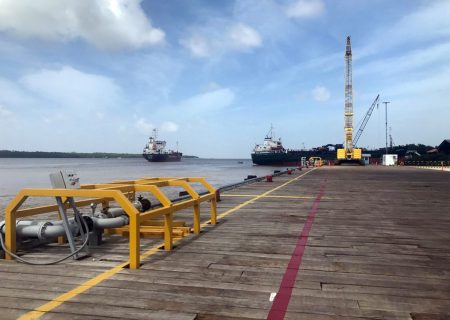 07 August 2013, Abuja – The Joint Senate Committee on Petroleum Industry Bill, PIB, has called off its initial plan to hold public hearings in three zones of the country other than the one held on July 18 in Abuja.
07 August 2013, Abuja – The Joint Senate Committee on Petroleum Industry Bill, PIB, has called off its initial plan to hold public hearings in three zones of the country other than the one held on July 18 in Abuja.
The committee, which comprises the Committees on Petroleum (upstream), Petroleum (downstream), Gas and Judiciary had in April, scheduled public hearings on the bill for Abuja, Port Harcourt in South-south zone, Lagos in South-west and Kaduna in the North-west.
Although the chairman of the joint committee, Emmanuel Paulker, declined to respond to calls and text messages to his phone for an update on the bill Tuesday, a member of the committee who did not want to be named, said the plan to hold public hearings on the bill in the three zones had been put off because it was no longer necessary.
According to him, the Abuja public hearing had represented all interests expected at the zones’ hearings, adding that going ahead with further hearings in Port Harcourt, Lagos and Kaduna would have amounted to a duplication of the exercise.
The lawmaker also said what was left now was for the committee to write its report for onward presentation to the Senate upon its resumption from recess in September.
After presentation and adoption of the report, the bill would be presented for third reading.
However, another senator, who is a member of the joint committee, did not mince words about the slow pace of activities on the bill, admitting that committee’s efforts to get the bill passed quickly had fallen short of expectations.
Indeed, legislation on the bill at the committee stage had been extremely slow since March 7, when the bill passed through the second reading on the floor of the Senate and was committed to the joint committee for further legislation.
This pace of work on the PIB was in sharp contrast with persistent calls for its quick passage by members of the public and oil industry who believe that the bill would usher widespread reforms and a new era for the oil and gas sector.
When the bill scaled the second reading after three days of heated debate on March 7, the Senate had asked the committee to immediately launch into action on the PIB by organising public hearings and carrying out other necessary legislations on the bill.
The joint committee was expected to report back to the chamber in six weeks. But five months after, it is yet to complete its assignment.
In May, two and half months after the committee was given the assignment, its Paulker, requested for an extension of legislation on the bill by another six weeks.
But three months after, it only succeeded in holding a public hearing in Abuja on July 18. And whilst the Abuja public hearing was scheduled for two days, the committee put off hearing for the second day, claiming that it was satisfied with attendance and the submissions on the first day.
Nevertheless, contentious issues on the bill had remained unresolved at the last public hearing as northern governors who were represented along with some organisations such as Revenue Mobilisation Allocation and Fiscal Commission, RMAFC, and Nigeria Extractive Industries and Transparency Initiative, NEITI, opposed the 10 per cent host community fund.
However, representatives of the host communities and other Niger Delta groups felt otherwise.
Most stakeholders at the hearing also opposed the alleged enormous powers given to the Minister of Petroleum Resources by the bill and canvassed for their reduction.
But Minister of Petroleum Resources, Mrs. Diezani Alison-Madueke, warned against politicising the bill, stating that its implementation would start after her exit from office.
In addition, local and international oil companies vehemently opposed the bill. According to them, while it was praiseworthy that the bill seeks to regulate the petroleum sector, its content portrays the bill as the harshest regulatory framework in the entire world.
They, therefore, appealed to the lawmakers to whittle down its content in a way that their interests would be protected.
Meanwhile, in the House of Representatives, the Ad hoc Committee on the PIB had since concluded its public hearings on the bill and the report was being awaited.
The public hearings were held in the six geo-political zones to enable stakeholders submit memoranda and make oral submissions on the bill. The grand finale of the public hearings was held in July in Abuja.
Chairman of the Ad hoc Committee on PIB, Hon. Isiaka Bawa, could not be reached to give an update on the current state of the bill Tuesday, but it was learnt that the committee had started putting together its report.
The report, which would contain an aggregate of the various positions of stakeholders, was expected to be submitted and subjected to further debate by the whole House when the lawmakers resume from their recess.
Although the bill faced a groundswell of opposition at the initial stage, its merger with a private member’s bill seeking the establishment of a National Frontiers Exploration and Production Agency to prospect for oil and gas in some parts of Northern Nigeria quelled the opposition to the bill.
Prior to the introduction of the private member’s bill, northern legislators had kicked against the bill, alleging that it was skewed against their region and designed to cater only to the interest of the oil-rich Niger Delta states.
– Nzeshi Onwuka and Omololu Ogunmade, This Day



